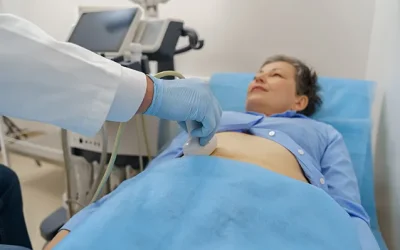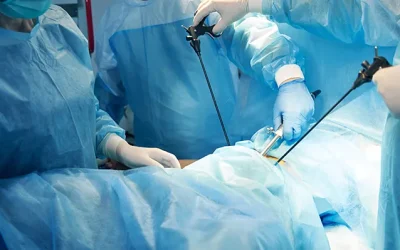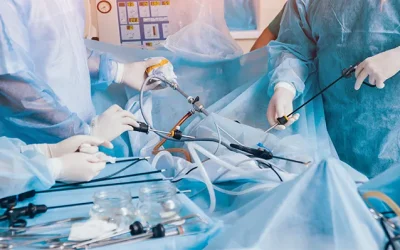Understanding What Exactly is Menopause: Overview
Menopause is just a purely natural biologic event that describes the absence of a woman’s menstrual periods. It is an indication giving a cue to the end of a woman’s reproductive cycle. The process of menopause can be observed at any point in between the ages of 45 to 55 years; however, with some other women, it purely can take place at any age. It is generally defined as twelve consecutive months of no menstrual period. Menopause is anticipated by a woman for the natural phenomenon of the life cycle; but definitely, sentiments and emotions about it can trouble a woman. The knowledge of what menopause is, what type of symptoms to anticipate and how to tackle them can probably help make the transition much smoother over
Most women experience menopause when their ovaries reduce the production of the hormones estrogen and progesterone—both essential in controlling the menstrual cycle. When it reduces the levels of these hormones, the eggs are utilized slowly after which no eggs would remain which would stop the menstruation cycle. The period before menopause is referred to as perimenopause and usually is many years in most women where the levels of these hormones fluctuate and sometimes give up symptoms of menopause.
Menopause Symptoms
Though in the case of every woman, symptoms may vary, there are some typical symptoms. These typically include:
• Hot Flashes: They are characterized by unexpected increases in body temperature, a transient blood pressure, and a sweat potentially causing flushing of the face, neck, and chest. These types of flushes, according to statistics of their timing, durations, and even time of day they occur, last from 30 seconds to, on average, 10 minutes.
– Night Sweats: These can be considered the literal hot flash that is experienced at night, causing much sweat that it also messes up the woman’s pattern of sleep.
– Irregular Periods: In perimenopause, periods will find a way to be irregular. Some become longer or shorter, heavier or lighter, and eventually some just stop altogether.
• Vaginal Dryness: The vagina dries up, corresponding with decreasing doses of estrogen, and the vaginal tissues get thin. Sexual intercourse becomes painful, and the chances of a urinary tract infection increase.
• Mood Swings: Huge hormonal changes make a woman prone to mood swings, irritability, etc., which have more tendencies to bring about depression and anxiety.
• Sleep Disturbance: Most females in this age group report lacking sleep disorders caused by night sweats, insomnia, or other factors related to this.
• Weight Gain: Hormonal changes that occur during the perimenopausal period may lead to changed metabolism in women, tending to put on more weight, especially around the lower abdomen.
• Thinning Hair and Dry Skin: The hair begins to thin, and the skin starts to dry, becoming less supple.
Dealing with Menopause
While menopause is a natural fact of life, its symptoms can be very uncomfortable indeed and it can mean weeks of disruptions. The following ways can help you alleviate or control these symptoms:
• Hormone Replacement Therapy (HRT): This treatment affects the menopausal symptoms by giving women with estrogen and progesterone. Doing so could help alleviate problems such as hot flashes, sweating at night, or dryness in the vagina. However, it won’t suit everybody, so consult a doctor to know the risks weighed against the benefits of such treatment.
• Lifestyle factors: Regular exercise and healthy diet with maintenance of normal weight may be helpful in reducing weight gain, changes in mood and sleeping pattern. Reduction in alcohol and caffeine intake before bedtime can promote sound sleep. Activity keeps the mind busy and generates the capability of coping with stress.
• Stress management: Deep breathing, yoga, meditation, and mindfulness are some such activities. These in turn will help reduce your stress levels and enhance your mood. Some antidepressants and blood pressure drugs can be given to women who cannot take HRT to reduce side effects such as hot flashes. These are non-hormonal medications.
• Vaginal Moisturizers and Lubricants: If you face dryness during sex, then you may use various types of vaginal moisturizers or lubricants to make things a little more comfortable.
Baseline Health Screenings: As menopausal women are at high risk for several conditions such as osteoporosis and heart diseases, regular check-ups are necessary. In order to maintain health its is advised to have timely blood pressure and complete cholesterol level tests.
When to Consult a Doctor
Menopause is a natural course. The patient-based consultation with the health care professional should be sought only when the symptoms are severe or distressing. It constitutes,
• Heavy Bleeding: In case of heavy bleeding, that is far more than your normal period or lasts far longer than a normal period, that’s a reason to speak with a clinician.
•Severe Hot Flashes or Night Sweats: If hot flashes or night sweats are truly significantly disrupting your life, a health care professional can talk about possibilities—one of them being treatments.
Mood Changes: Should you feel overly depressed, anxious, or moody, by all means, schedule an appointment with your healthcare practitioner. Hormonal changes can exacerbate these feelings, but there is no need to suffer in silence.
Bone Health Concerns: If strong family history of osteoporosis or other bone density disorders — discuss with your physician to get bone density tested and how to get ahead of the ball on prevention.
Conclusion
Menopause is a unique life passage of changes that could occur, both physically and emotionally. That can be challenging, but the more informed a woman is with respect to what to expect and how to manage the symptoms, the easier the process becomes. With lifestyle adjustments and medical treatment or just being better informed, a woman becomes better equipped to handle menopause. Whatever concerns around menopause or its symptoms that may arise, never shy away from seeking advice and being supported by your health professional—always individually tailored to you.




0 Comments